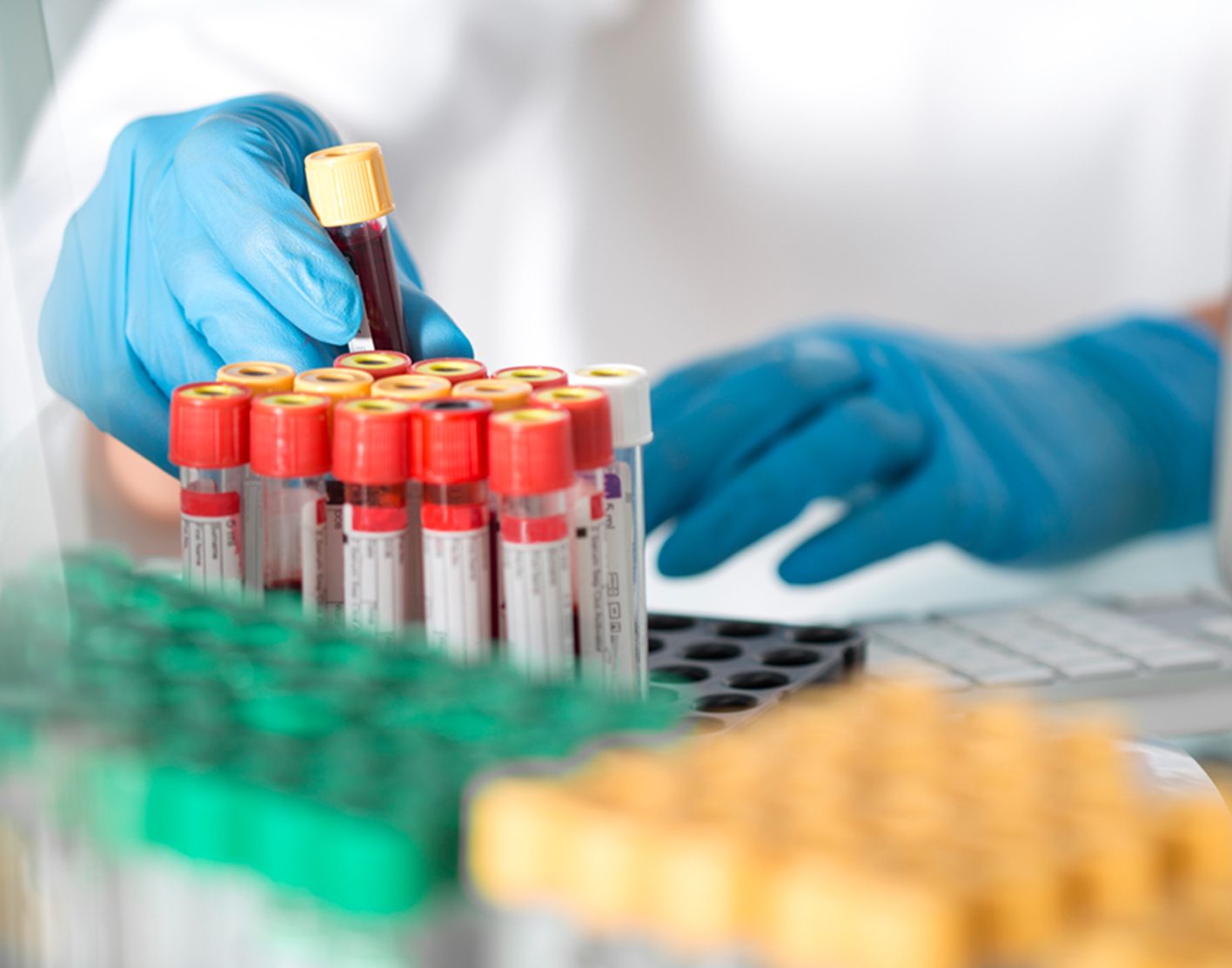
Aldosterone blood test
Definition
The aldosterone blood test measures the level of the hormone aldosterone in blood.
Aldosterone can also be measured using a
Alternative Names
Aldosterone - serum; Addison disease - serum aldosterone; Primary hyperaldosteronism - serum aldosterone; Bartter syndrome - serum aldosterone
How the Test is Performed
A
How to Prepare for the Test
Your health care provider may ask you to stop taking certain medicines a few days before the test so that they don't affect the test results. Be sure to tell your provider about all the medicines you take. These include:
- High blood pressure medicines
- Heart medicines
- Nonsteroidal anti-inflammatory drugs (NSAIDs)
- Antacid and ulcer medicines
- Water pills (diuretics)
Do not stop taking any medicine before talking to your provider. Your provider may recommend that you eat no more than 3 grams of salt (sodium) per day for at least 2 weeks before the test.
Or, your provider may recommend that you eat your usual amount of salt and also test the amount of
At other times, the aldosterone blood test is done right before and after you receive a salt solution (saline) through the vein (IV) for 2 hours. Be aware that other factors can affect aldosterone measurements, including:
- Pregnancy
- High- or low-sodium diet
- High- or low-potassium diet
- Eating large amounts of black licorice
- Strenuous exercise
- Stress
How the Test will Feel
When the needle is inserted to draw blood, some people feel moderate pain. Others feel only a prick or stinging sensation. Afterward, there may be some throbbing or a slight bruise. This soon goes away.
Why the Test is Performed
This test is ordered for the following conditions:
- Certain fluid and
electrolyte disorders, most often low or high blood sodium or low potassium - Hard to control blood pressure
Low blood pressure upon standing (orthostatic hypotension)- Discovery of an adrenal nodule on an
abdominal CT scan orMRI done for a different reason (incidentaloma)
Aldosterone is a hormone released by the
Aldosterone blood test is often combined with other tests, such as the
Normal Results
Normal levels vary:
- Between children, teens, and adults
- Depending on whether you were standing, sitting, or lying down when the blood was drawn
Normal value ranges may vary slightly among different laboratories. Some labs use different measurements or test different samples. Talk to your provider about the meaning of your specific test results.
What Abnormal Results Mean
A higher than normal level of aldosterone may be due to:
Bartter syndrome (group of rare conditions that affect the kidneys)- Adrenal glands release too much aldosterone hormone (
primary hyperaldosteronism - usually due to a benign nodule in the adrenal gland) - Very low-sodium diet
- Taking blood pressure medicines called mineralocorticoid antagonists
- Abuse of diuretics
Liver cirrhosis Heart failure - Laxative abuse
A lower than normal level of aldosterone may be due to:
- Adrenal gland disorders, including not releasing enough aldosterone, and a condition called primary adrenal insufficiency (
Addison disease ) - Very high-sodium diet
Risks
There is little risk involved with having your blood taken. Veins and arteries vary in size from one person to another and from one side of the body to the other. Taking blood from some people may be more difficult than from others.
Other risks associated with having blood drawn are slight but may include:
- Excessive bleeding
- Fainting or feeling lightheaded
- Multiple punctures to locate veins
Blood accumulating under the skin (hematoma)- Infection (a slight risk any time the skin is broken)
References
Guber HA, Oprea M, Russell YX . Evaluation of endocrine function. In: McPherson RA, Pincus MR, eds. Henry's Clinical Diagnosis and Management by Laboratory Methods. 24th ed. Philadelphia, PA: Elsevier; 2022:chap 25.
Young MJ, Fuller PJ. Mineralocorticoids: physiology, metabolism, receptors, and resistance. In: Robertson RP, ed. DeGroot's Endocrinology. 8th ed. Philadelphia, PA: Elsevier; 2023:chap 88.
Review Date: 30/07/2023
The information provided herein should not be used during any medical emergency or for the diagnosis or treatment of any medical condition. A licensed physician should be consulted for diagnosis and treatment of any and all medical conditions. Call 911 for all medical emergencies. Links to other sites are provided for information only -- they do not constitute endorsements of those other sites. Copyright ©2019 A.D.A.M., Inc., as modified by University of California San Francisco. Any duplication or distribution of the information contained herein is strictly prohibited.
Information developed by A.D.A.M., Inc. regarding tests and test results may not directly correspond with information provided by UCSF Health. Please discuss with your doctor any questions or concerns you may have.



























